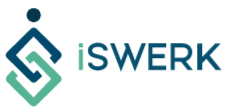
Struggling to decide between hiring a dedicated remote team and outsourcing a business function? The rise of the remote workforce has transformed modern business, offering organizations new pathways to efficiency, savings, and global talent. But when weighing options like remote staffing and business process outsourcing (BPO), which strategy delivers the best results for your company’s unique needs?
This guide breaks down the core differences to help you make the right choice for your business growth and operational success.
Understanding Remote Staffing
Remote staffing refers to hiring dedicated remote employees who work outside traditional office settings, often from their home or another location. Businesses may build their workforce by hiring individuals directly or partnering with a remote staffing agency to source talent efficiently.
This model enables companies to tap into a worldwide labor pool, finding specialists in various fields while controlling recruitment and team management.
The remote staffing approach fosters deeper integration: remote workers become part of your extended team, aligning with your culture and long-term goals. This is particularly valuable for organizations seeking consistent team alignment through telecommuting arrangements.
However, it certainly does not come without challenges—building a remote workforce requires investment in sourcing, onboarding, training, and oversight.
What Is BPO?
Business process outsourcing (BPO) means delegating specific tasks or entire business functions to third-party specialists, often in locations with lower operational costs. BPO providers manage everything from hiring to performance and quality control, allowing companies to focus on core activities. Popular BPO functions include customer service, accounting, IT, and data entry.
The chief advantage of BPO lies in efficiency and cost savings. Outsourcing companies have robust processes, specialized expertise, and large remote teams ready to handle scaled projects—freeing their clients from day-to-day management. Plus, BPO contracts typically offer flexibility in scaling up or down as business needs shift.
Yet, BPO is not a perfect fit for every business. It can mean limited control over staffing decisions, potential communication barriers, and risks
Key Differences: Remote Staffing vs BPO
Let’s break down the core differences between these two strategies.
| Factor | Remote Staffing | Business Process Outsourcing (BPO) |
| Control | High. You directly manage the team. | Limited. The provider handles management. |
| Cost | Moderate, variable. Investment in a long-term team member. | Lower, predictable. Fixed cost for a task or service. |
| Flexibility | Highly flexible to scale and adapt roles. | Fixed contracts with predefined deliverables. |
| Scalability | Slower to scale, but better for integration. | Easy to scale for high-volume needs. |
| Expertise | Direct access to global talent pool, with cultural integration. | Immediate access to specialist teams for tasks |
| Management | High management/admin burden for employer. | Provider handles hiring, HR, and oversight. |
| Company Culture | Stronger alignment with values and cohesion. | Weaker alignment. A transactional relationship. |
| Risk/Anxiety | Responsibility for compliance, payroll, retention | Risk of quality issues, less oversight, data security concerns |
- Control: Remote staffing gives you direct management of remote employees; you choose your team, set protocols, and oversee their output. With BPO, management is handled by the provider, and your role is mainly supervisory through project managers.
- Flexibility: Remote staffing provides immense flexibility, allowing you to scale your team quickly and tailor roles to your business needs. BPO contracts tend to be more rigid, with predefined deliverables and less room for customization.
- Costs: BPO often seems less expensive upfront since providers benefit from economies of scale. Remote staffing involves variable costs, including hiring, training, payroll, and infrastructure—but offers better integration for long-term projects.
- Expertise: BPO is best for accessing specialized talent fast, especially for task-specific roles. Remote staffing excels when you want ongoing input from a culturally aligned, committed remote workforce.
- Recruitment and Management: Hiring via a remote staffing agency gives you more say over your team and ongoing telecommute management. BPO frees you from recruitment hassles but at the expense of control.
Which Should You Choose?
The answer depends entirely on your business priorities.
How do I know if remote staffing is the right solution for my business?
- If you value seamless integration, culture fit, and retaining hands-on control, building a remote workforce through remote staffing or a remote staffing agency is ideal. This route is especially effective for long-term roles and knowledge-intensive functions that require full-time remote employees who “telecommute” and become part of your brand story.
- If your goal is cost efficiency, rapid scalability, and specialized expertise with minimal management, business process outsourcing (BPO) may deliver better results—particularly for well-defined, repetitive, or non-core tasks.
- If you value seamless integration, culture fit, and retaining hands-on control, building a remote workforce through remote staffing or a remote staffing agency is ideal. This route is especially effective for long-term roles and knowledge-intensive functions that require full-time remote employees who “telecommute” and become part of your brand story.
Final Thoughts
Deciding between remote staffing and BPO is not just a question of cost or convenience—it’s about choosing a model that aligns with your business’s growth strategy and operational needs.
- Analyze your priorities: What are your long-term goals for this function?
- Evaluate your resources: How much management time can you spare?
- Select the approach that will maximize your company’s potential in the remote age.
By understanding the core differences and considering how a remote workforce or business process outsourcing (BPO) fits into your strategy, your organization can thrive while maintaining agility, control, and world-class talent.
Your Growth Potential Awaits
Unlock your business’s full potential today by partnering with iSWerk—gain expert remote staffing support and a trusted remote workforce, so you can focus on growth while we handle the rest.
Or Email us at buildyourteam@isupportworldwide.com
About the Author
Denise Romero works as a copywriter at iSWerk (iSupport Worldwide), where she specializes in B2B content that helps businesses flourish. She specializes in creating clear, compelling messages that engage professional audiences and support strategic marketing goals.
About iSWerk
iSWerk is a leading remote staffing company in the Philippines that connects businesses with top remote talent. We streamline recruitment, payroll, and training to empower SMEs with tailored solutions, cutting labor costs by up to 60%. iSWerk delivers excellence in remote staffing and flexible work solutions. Explore how you can achieve your business goals with iSWerk today.
